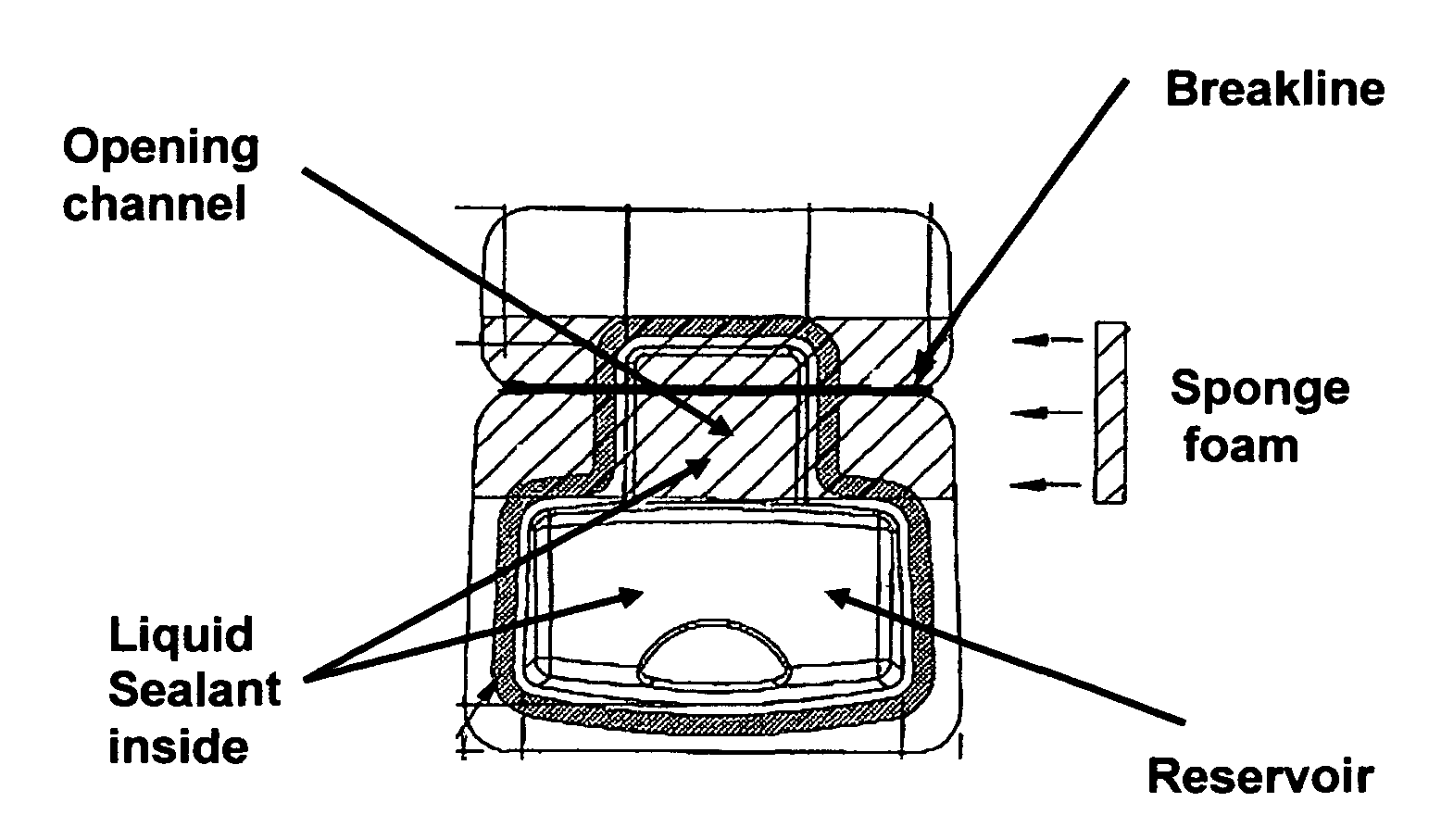Cyanoacrylate-based liquid microbial sealant drape
a technology of cyanoacrylate and microbial contamination, applied in the direction of biocide, bandages, surgery, etc., can solve the problems of bacterial contamination, ssi is a significant cause of surgical morbidity and mortality, and the hospitalization is longer, so as to achieve the effect of safe and biocompatibl
- Summary
- Abstract
- Description
- Claims
- Application Information
AI Technical Summary
Benefits of technology
Problems solved by technology
Method used
Image
Examples
example 1
Setting Time Measurement
[0087]Pig skin (4×4 square inch) was prepared by wiping the surfaces of the skin with sterile gauze saturated with isopropanol. All oily substances were thereby removed from the pig skin. The surface was wiped with sterile gauze to remove the isopropanol. The applicator containing the microbial sealant composition was opened and adhesive was permitted to saturate the sponge applicator tip for about 10 seconds prior to application. A thin film was applied to the pig skin after which elapsed time was recorded by a stop watch. Set time was then recorded by stopping the clock when the film was dry as determined at the point where no liquid transfer occurred when the film was touched with a gloved finger.
example 2
Viscosity Measurement
[0088]The viscosity of the cyanoacrylate compositions were measured by the Brookfield DV-II+ viscometer. The spindle and cup were cleaned with acetone after each measurement. About 0.5 ml of the microbial sealant composition was put into the cup and the cup was brought into position and slowly secured with the retaining arm. The motor was turned on after the sample was equilibrated in the cup. The viscosity of the disclosed microbial sealant composition was measured in triplicate. Any residue was removed with acetone prior to next sample measurement.
example 3
Average Set Time and Viscosity for Cyanoacrylate Mixtures
[0089]To a polyethylene bottle equipped with a magnetic stir bar, 24 g of n-butyl cyanoacrylate (BCA) was mixed with 56 g of 2-octyl cyanoacrylate (OCA) at room temperature for 4 hours (Composition 1). To a polyethylene bottle equipped with a magnetic stir bar, 32 g of n-butyl cyanoacrylate (BCA) was mixed with 48 g of 2-octyl cyanoacrylate (OCA) at room temperature for 4 hours (Composition 2). 3 lbs of n-butyl cyanoacrylate (BCA) was mixed with 12 lbs of 2-octyl cyanoacrylate (OCA) in a plastic container at room temperature for 4 hours. A trace amount of D & C Violet #2 was included in BCA and OCA as the colorant (Composition 3). Each of the three compositions was tested for average set time and average viscosity, as shown in Table 3.
[0090]
TABLE 3Average viscosity and set time of the preferred microbialsealant compositions.CompositionAvg. set timeAvg. viscosityComposition 124.5 s3.68 cpsComposition 227.8 s3.88 cpsComposition ...
PUM
| Property | Measurement | Unit |
|---|---|---|
| thickness | aaaaa | aaaaa |
| temperature | aaaaa | aaaaa |
| size | aaaaa | aaaaa |
Abstract
Description
Claims
Application Information
 Login to View More
Login to View More - R&D
- Intellectual Property
- Life Sciences
- Materials
- Tech Scout
- Unparalleled Data Quality
- Higher Quality Content
- 60% Fewer Hallucinations
Browse by: Latest US Patents, China's latest patents, Technical Efficacy Thesaurus, Application Domain, Technology Topic, Popular Technical Reports.
© 2025 PatSnap. All rights reserved.Legal|Privacy policy|Modern Slavery Act Transparency Statement|Sitemap|About US| Contact US: help@patsnap.com

